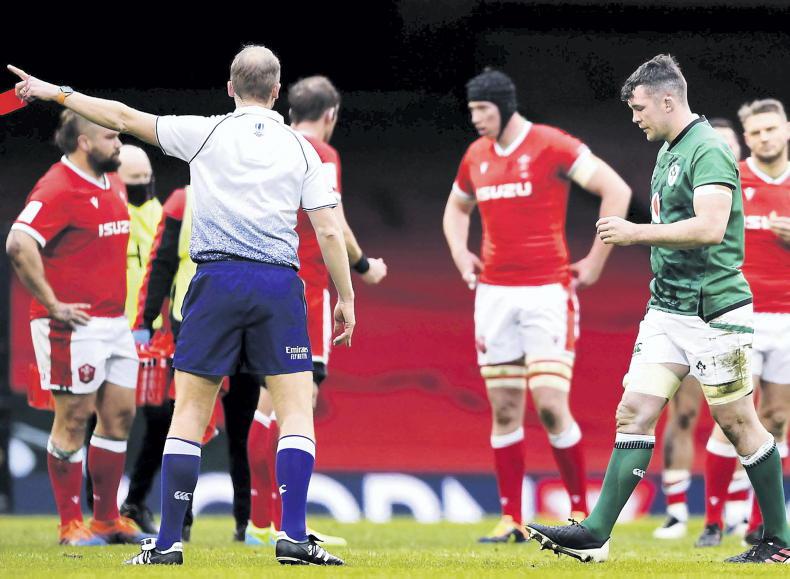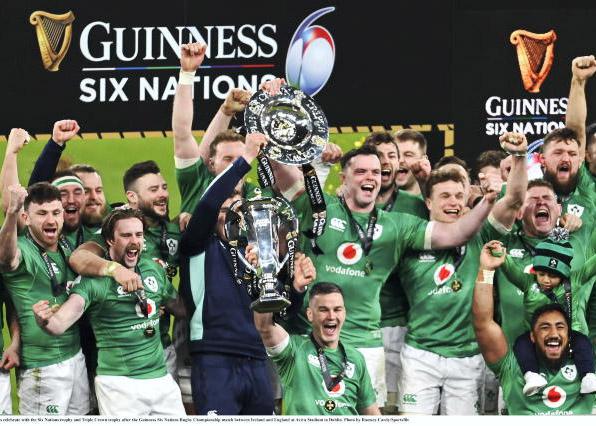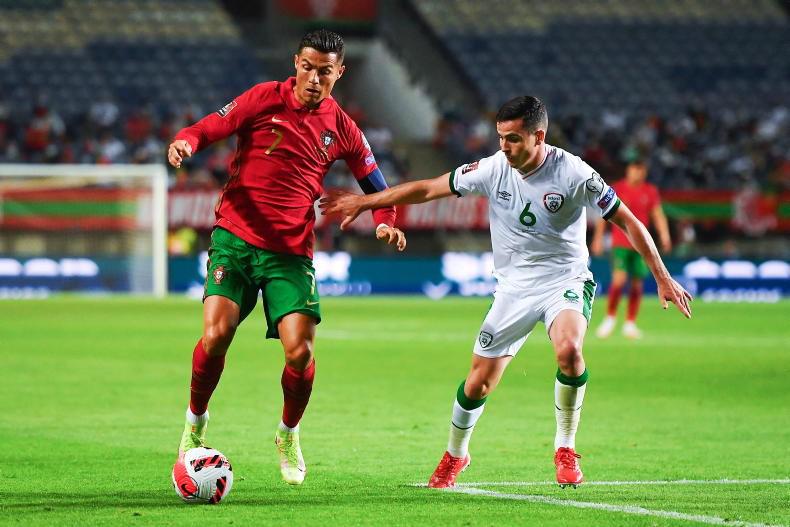It shouldn’t need to be said, but nobody goes out to play badly.
Peter O’Mahony certainly wouldn’t have been planning his Six Nations campaign around a red card inside a quarter of an hour against Wales last Sunday and Billy Burns definitely didn’t think that failing to find touch from a late penalty would be the best way to advance his case to becoming the starting out-half.
Top-level professional sport is tough though and the slightest mistake is punished. It’s why it’s so appealing to us, seeing who can handle that pressure the best. It’s why, to take a topical example, the achievement of Tom Brady in winning a seventh Super Bowl at the age of 43 looks like something that nobody else will get near – but then, nobody expected Brady to manage it, so it’s not out of the question.
Online abuse
Back to the rugby, though. As is the nature of the modern world and the ease of access to sports stars due to social media, O’Mahony and Burns were the source of the kinds of vitriol that we have come to expect from the usual quarters. Perhaps because of the time of the game, perhaps because he is less established and has less credit built up or perhaps because he is English-born, Burns seemed to bear the brunt of it.
There is no defending anybody who feels it right and proper to call these players the kinds of names that we won’t be repeating here. However, there was also another phenomenon, one which has become quite prevalent, too – the rush to defend the two players whose individual errors were most costly in Ireland losing to what was an unremarkable Wales side.
It mightn’t garner as much attention to be measured, but there is a middle ground. You can personally sympathise with the anguish that the pair feel and also express the view that someone who has captained the Lions should know better than go in for such a reckless tackle so early in the game, or that an out-half of international standard should make sure of a kick to touch in injury time.
Perhaps it’s the fact that rugby is still a young sport in professional terms, but there does appear to be a tendency among media and fans to sugar-coat things and fall in line. The knock-on to that is the critics then are often more virulent than is needed and they come across as begrudgers rather than fair analysts.
Ultimately, the success or not in responding to what happened on Sunday will be determined by the level of accountability within the squad.
All great teams have strong dressing-room cultures, where support is offered without it spilling over into sympathy and where character is formed by the ability to deal with adversity in a calm and composed manner.
O’Connell Addition
To that end, the addition of Paul O’Connell to the Irish backroom team could be as important from an off-field point as his work with the forwards on rolling mauls and the like. O’Connell certainly made mistakes – such as in the last Heineken Cup game at the old Thomond Park, where he opted to go for scrum from a penalty rather than take three points before Munster went on to lose to Leicester – but they stand out because he didn’t make them twice.
Continued excellence, in every aspect, is what propels a team to the top. O’Connell summed this up with the mantra of being the best at all the things that required no skill.
It’s a long-term process, of course, whereas the immediate task for Andy Farrell and Ireland is to try to bounce back from last week and put in a good performance against France at the Aviva Stadium this Sunday. Almost lost in the post-match focus on Sunday was how big a loss James Ryan has been to Ireland and both he and captain Jonathan Sexton – who also missed touch with a penalty, let’s not forget – will be assessed this week in the hope that they can be passed fit.
One would love to think that a full stadium would provide a lift, cheering Ireland on and get their campaign up and running but it’s all going to have come from within for the team and those around them.
There were a lot of good things to come out of last Sunday and Ireland would surely have won a 15-v-15 game. There’s no point dwelling on what-ifs obviously, but instead it’s about taking the positives and building on them.










SHARING OPTIONS